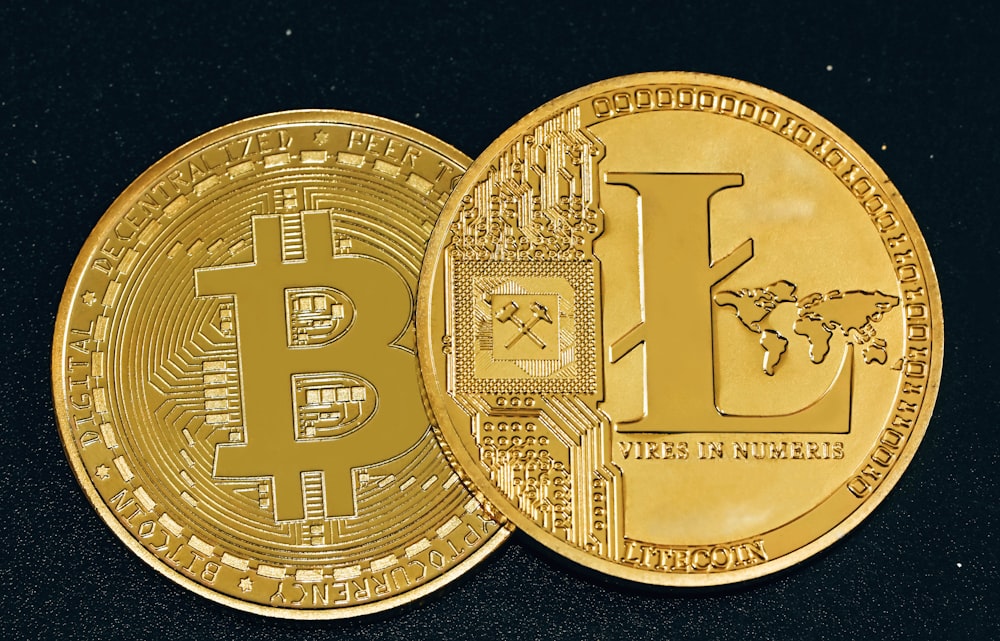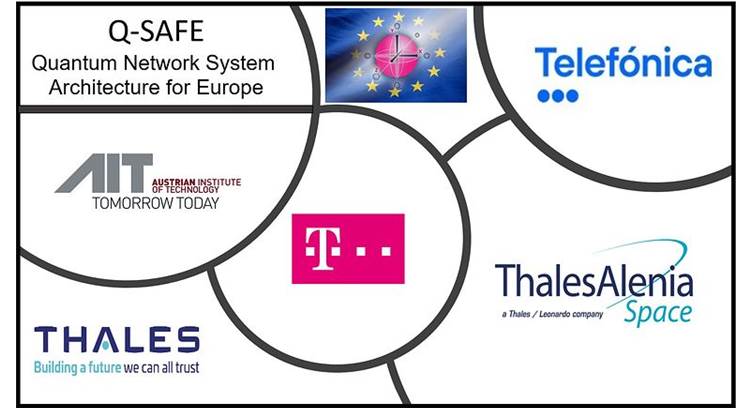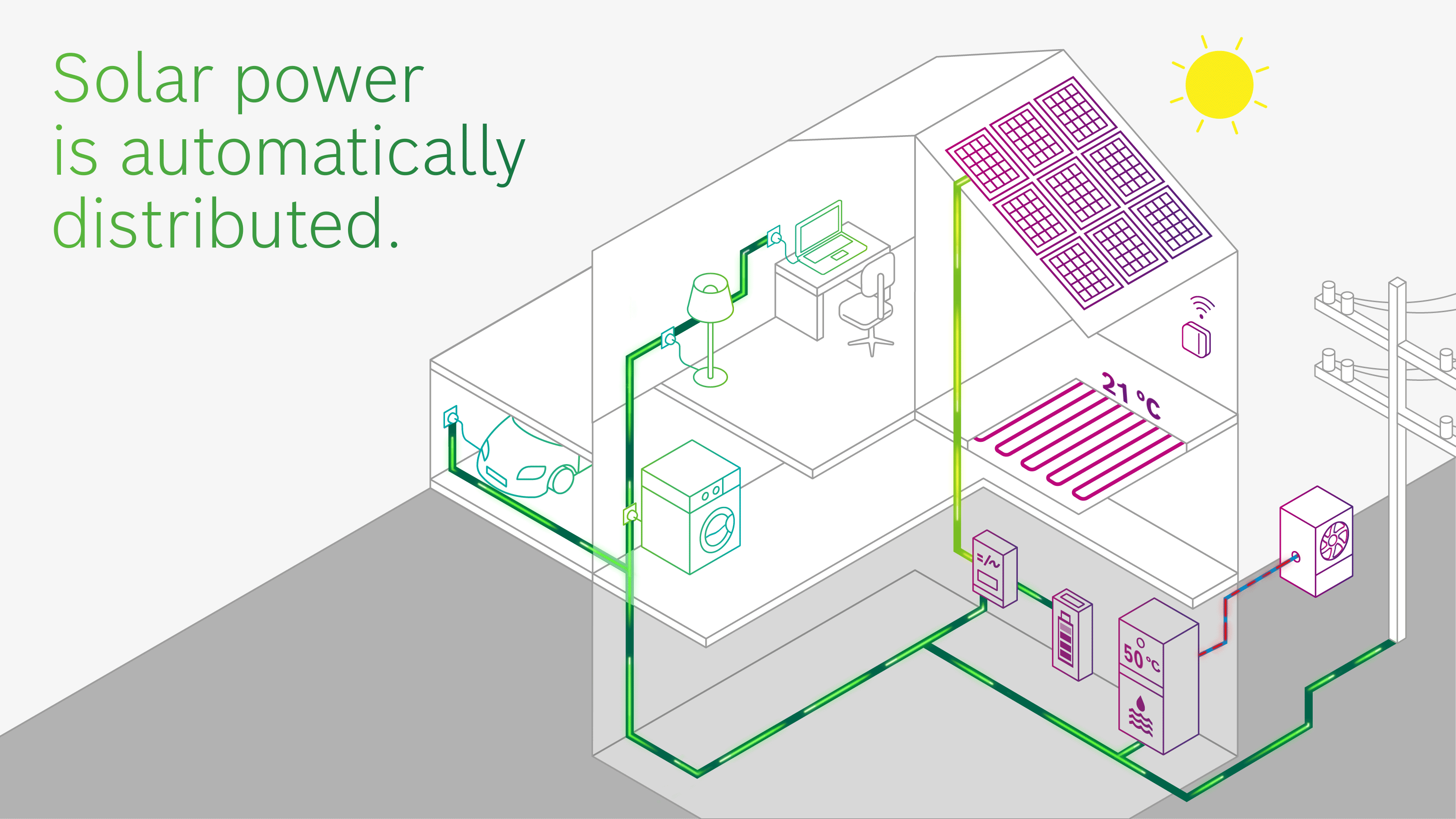
Exploring the Diverse Applications of Blockchain Technology
Understanding Blockchain Technology:
Blockchain technology has rapidly emerged as a transformative force across various industries. At its core, blockchain is a decentralized digital ledger that records transactions across a network of computers. Unlike traditional centralized databases, blockchain offers transparency, immutability, and security, making it suitable for a wide range of applications.
Revolutionizing Financial Services:
One of the most significant use cases of blockchain technology is in the financial services sector. Blockchain enables secure and transparent transactions without the need for intermediaries like banks. Cryptocurrencies such as Bitcoin and Ethereum utilize blockchain technology to facilitate peer-to-peer transactions, eliminating the need for traditional banking systems.
Transforming Supply Chains:
Blockchain technology is also revolutionizing supply chain management by providing transparency and traceability across the entire supply chain. With blockchain, companies can track the movement of goods from the point of origin to the end consumer in real-time. This level of transparency helps reduce fraud, improve efficiency, and ensure ethical sourcing practices.
Enhancing Data Security and Privacy:
Data security and privacy are paramount in today’s digital age, and blockchain offers a solution to these challenges. By leveraging cryptographic techniques and decentralized networks, blockchain ensures that data remains secure and tamper-proof. This makes blockchain technology ideal for storing sensitive information such as medical records and identity documents.
Empowering Decentralized Finance:
Decentralized finance, or DeFi, is a growing sector that leverages blockchain technology to create open and accessible financial services. With DeFi platforms, users can access a wide range of financial products and services, including lending, borrowing, and trading, without the need for traditional financial institutions. This democratizes access to financial services and fosters financial inclusion on a global scale.
Fostering Innovation and Disruption:
Blockchain technology is driving innovation and disruption across various industries. Startups and established companies alike are exploring the potential of blockchain to create new business models, streamline processes, and enhance customer experiences. From healthcare to real estate to entertainment, blockchain is reshaping traditional business practices and unlocking new opportunities for growth.
Navigating Regulatory Challenges:
Despite its potential, blockchain technology faces regulatory challenges and uncertainties in many jurisdictions. Governments and regulatory bodies are still grappling with how to regulate blockchain and cryptocurrencies effectively. As the technology continues to evolve, policymakers will need to strike a balance between fostering innovation and protecting consumers and investors.
Overcoming Scalability Issues:
Scalability is another challenge facing blockchain technology. As blockchain networks grow in size and popularity, they face limitations in terms of transaction throughput and processing speed. Developers are actively working on solutions to improve scalability, such as sharding and layer-two protocols, to ensure that blockchain technology can support mass adoption.
Embracing the Future of Blockchain:
Despite these challenges, the future of blockchain technology looks promising. With ongoing advancements in scalability, interoperability, and regulation, blockchain has the potential to revolutionize industries and reshape the global economy. As businesses and consumers continue to embrace blockchain technology, we can expect to see even more innovative applications and use cases emerge in the years to come. Read more about use of blockchain

Exploring the Impact The Use of Blockchain in Various Fields
Miracle April 10, 2024 ArticleExploring the Role and Impact of Blockchain Technology
Understanding the Foundations of Blockchain
Blockchain technology has emerged as a transformative force across various industries, revolutionizing the way data is stored, verified, and transmitted. At its core, blockchain is a decentralized ledger system that enables secure and transparent transactions without the need for intermediaries.
Transforming Digital Transactions
One of the key applications of blockchain technology is in digital transactions. By utilizing cryptographic techniques and consensus mechanisms, blockchain ensures the integrity and security of digital transactions, reducing the risk of fraud and tampering. This has profound implications for industries such as finance, supply chain, and healthcare, where trust and transparency are paramount.
Enhancing Supply Chain Management
Blockchain technology is reshaping supply chain management by providing an immutable and transparent record of goods as they move through the supply chain. With blockchain, companies can track the provenance and authenticity of products in real-time, reducing counterfeiting and improving traceability.
Revolutionizing Financial Services
In the realm of financial services, blockchain is disrupting traditional banking systems by enabling peer-to-peer transactions and decentralized finance (DeFi) applications. Blockchain-based cryptocurrencies, such as Bitcoin and Ethereum, offer an alternative to traditional currencies, providing users with greater autonomy and financial freedom.
Empowering Decentralized Applications
Beyond financial services, blockchain technology is empowering the development of decentralized applications (dApps) across various industries. These dApps operate on blockchain networks, enabling secure and transparent interactions without the need for centralized control. From decentralized social networks to voting systems, blockchain-based dApps are revolutionizing the way we interact with digital platforms.
Addressing Data Security Concerns
Data security is a growing concern in the digital age, with cyberattacks and data breaches becoming increasingly common. Blockchain technology offers a solution to these challenges by providing a secure and tamper-proof way to store and transmit data. By decentralizing data storage and encryption, blockchain mitigates the risk of data manipulation and unauthorized access.
Fostering Trust and Transparency
Trust and transparency are foundational principles of blockchain technology. By creating a decentralized and immutable ledger of transactions, blockchain instills trust among participants and ensures transparency in business dealings. This trustless environment reduces the need for intermediaries and streamlines processes, ultimately leading to greater efficiency and cost savings.
Exploring Blockchain Beyond Cryptocurrency
While blockchain is often associated with cryptocurrencies, its potential extends far beyond digital currencies. Blockchain technology has applications in identity management, healthcare, real estate, and more. By leveraging blockchain, organizations can streamline operations, improve security, and enhance trust in their systems.
Navigating Regulatory Challenges
As blockchain technology continues to gain traction, regulators are grappling with how to govern this emerging industry. The decentralized nature of blockchain presents unique challenges for traditional regulatory frameworks, requiring policymakers to adapt and evolve their approach to accommodate this new paradigm. Despite these challenges, regulatory clarity is essential for fostering innovation and adoption of blockchain technology.
Embracing the Future of Blockchain
In conclusion, blockchain technology represents a paradigm shift in the way we store, transmit, and verify data. Its decentralized and transparent nature has the potential to revolutionize industries across the globe, from finance to healthcare to supply chain management. As we navigate the opportunities and challenges presented by blockchain, one thing is clear: the future is decentralized. Read more about use of blockchain


Blockchain in Healthcare
Blockchain technology has been making significant strides across various industries, and its impact on healthcare is becoming increasingly evident. In this article, we will explore how blockchain is revolutionizing the healthcare sector, addressing key challenges, and paving the way for a more secure and efficient healthcare ecosystem.
Enhancing Data Security and Integrity
One of the primary advantages of blockchain in healthcare is its ability to enhance data security and integrity. Traditional healthcare systems often struggle with securing patient data, leading to breaches and unauthorized access. Blockchain’s decentralized and cryptographic nature makes it highly resistant to tampering and unauthorized access. Each transaction or piece of data is securely recorded in a block, linked to the previous one, creating an immutable and transparent chain.
Streamlining Interoperability
Interoperability is a major challenge in healthcare, with different healthcare providers and systems often using incompatible formats and standards. Blockchain has the potential to address this issue by providing a standardized and interoperable platform. Smart contracts, self-executing contracts with the terms of the agreement directly written into code, can automate and streamline processes, leading to better collaboration and communication among healthcare entities.
Facilitating Seamless Data Exchange
The secure and transparent nature of blockchain facilitates seamless data exchange among different stakeholders in the healthcare ecosystem. Patients, healthcare providers, insurers, and regulators can access a single, unified source of truth, reducing the chances of errors and ensuring that everyone involved has access to accurate and up-to-date information. This not only improves the efficiency of healthcare processes but also contributes to better patient outcomes.
Empowering Patients with Control Over Their Data
Blockchain empowers patients by giving them greater control over their health data. Through the use of private keys, patients can grant or revoke access to their health information, ensuring that sensitive data is only shared with authorized individuals or entities. This not only enhances patient privacy but also encourages individuals to actively participate in their healthcare decisions and treatments.
Ensuring Drug Traceability and Authentication
Blockchain can play a crucial role in ensuring the traceability and authentication of pharmaceuticals. By recording the entire supply chain process on a blockchain, from manufacturing to distribution, the authenticity of drugs can be verified at every step. This helps in preventing counterfeit drugs from entering the market, ensuring patient safety, and maintaining the integrity of the pharmaceutical supply chain.
The Role of Blockchain in Healthcare: Looking Forward
As we delve into the transformative potential of blockchain in healthcare, it’s essential to keep an eye on future developments. The ongoing integration of blockchain technology into healthcare systems is expected to result in improved efficiency, reduced costs, and better patient outcomes.
Blockchain in Healthcare is not just a concept; it’s a reality that is shaping the future of the healthcare industry. As the technology continues to mature, its applications in healthcare are likely to expand, offering innovative solutions to longstanding challenges.
To explore a practical application of blockchain in healthcare, check out Blockchain in Healthcare. This platform leverages blockchain to ensure secure and efficient data management in healthcare, contributing to a more reliable and patient-centric healthcare system.
In conclusion, the integration of blockchain technology in healthcare holds immense promise. From enhancing data security and interoperability to empowering patients and ensuring drug traceability, blockchain is reshaping the healthcare landscape. As we navigate the evolving landscape of healthcare technology, blockchain stands out as a beacon of innovation, offering solutions that can revolutionize the way we approach healthcare.


Securing the Internet of Things: Introduction
As the Internet of Things (IoT) continues to expand, so do the vulnerabilities associated with interconnected devices. Cybersecurity for IoT Networks is a critical concern in safeguarding sensitive data and ensuring the reliability of interconnected systems. In this article, we explore innovative cybersecurity measures that play a pivotal role in fortifying IoT networks.
The Pervasiveness of IoT Networks
IoT networks have become integral in various industries, from smart homes and healthcare to industrial applications. The widespread adoption of interconnected devices enhances efficiency but also intensifies the need for robust cybersecurity measures. As these networks grow, so does the potential attack surface for cyber threats.
Unique Challenges in IoT Security
Securing IoT networks presents unique challenges compared to traditional cybersecurity. The sheer diversity of devices, varying communication protocols, and often limited resources on IoT devices make them susceptible to different attack vectors. Addressing these challenges requires specialized cybersecurity strategies tailored to the intricacies of IoT environments.
Implementing Strong Authentication Protocols
One cornerstone of Cybersecurity for IoT Networks is the implementation of robust authentication protocols. Device authentication ensures that only authorized devices can connect to the network, mitigating the risk of unauthorized access. Strong authentication measures, including biometrics and two-factor authentication, bolster the overall security posture.
End-to-End Encryption for Data Security
Ensuring the confidentiality of data transmitted within IoT networks is paramount. End-to-End Encryption (E2EE) plays a crucial role in safeguarding data from potential eavesdropping or interception. This encryption method secures data from the point of origin to the destination, providing a secure communication channel for IoT devices.
Continuous Monitoring and Anomaly Detection
Effective cybersecurity requires continuous monitoring of IoT networks. Anomaly detection mechanisms use machine learning algorithms to identify unusual patterns or behaviors within the network. By swiftly identifying deviations from normal operation, cybersecurity professionals can respond promptly to potential security threats.
Network Segmentation for Containment
Network segmentation involves dividing an IoT network into isolated segments, restricting unauthorized access between segments. This containment strategy limits the lateral movement of attackers within the network, minimizing the potential impact of a security breach. Network segmentation is an essential practice for enhancing cybersecurity resilience.
To explore cutting-edge solutions in Cybersecurity for IoT Networks, visit Cybersecurity for IoT Networks. This platform offers insights into advanced cybersecurity technologies designed to protect IoT ecosystems.
Firmware and Software Updates as Defense Mechanisms
Regular updates to device firmware and software are crucial components of cybersecurity hygiene. Manufacturers often release updates to patch vulnerabilities and enhance the security features of IoT devices. Timely application of these updates ensures that devices remain resilient against emerging threats.
Collaboration for Standardization
The complexity of IoT security calls for collaborative efforts to establish standardized security protocols. Industry stakeholders, manufacturers, and cybersecurity experts must work together to create guidelines and best practices for IoT security. Standardization promotes a unified approach, making it easier to implement and adhere to robust cybersecurity measures.
User Education and Awareness
The human factor remains a significant element in IoT security. Educating users about the importance of cybersecurity practices, such as setting strong passwords and recognizing phishing attempts, is crucial. Empowered users contribute to a more secure IoT ecosystem by actively participating in safeguarding their devices.
Looking Ahead: The Future of IoT Security
As the IoT landscape continues to evolve, so will the cybersecurity measures designed to protect it. The future of Cybersecurity for IoT Networks holds promise, with advancements in artificial intelligence, blockchain, and zero-trust architectures contributing to a more resilient and secure interconnected world. Staying vigilant and proactive in adopting these innovations will be key to securing the next generation of IoT networks.


Quantum Cryptography: Cutting-Edge Advances
Quantum cryptography is at the forefront of security technology, leveraging the principles of quantum mechanics to create cryptographic systems resistant to hacking and breaches. Recent advancements in this field promise enhanced security measures, transforming the landscape of data protection.
1. The Foundation of Quantum Cryptography
Quantum cryptography relies on the principles of quantum mechanics to secure data transmission. It utilizes quantum key distribution (QKD) to establish secure communication channels, leveraging the properties of quantum particles like photons for encryption that is theoretically impossible to intercept without detection.
2. Unbreakable Encryption Techniques
Quantum cryptography offers unbreakable encryption techniques due to its reliance on fundamental quantum properties. The uncertainty principle and the no-cloning theorem prevent unauthorized interception or duplication of quantum-encoded information, ensuring highly secure communication channels.
3. Advancements in Quantum Key Distribution
Recent advancements in quantum key distribution have led to increased efficiency and longer transmission distances. Scientists have developed more robust QKD protocols and improved hardware, allowing for secure key distribution over longer distances, essential for practical implementation.
4. Quantum-Secure Networks and Post-Quantum Cryptography
The development of quantum-secure networks is a significant milestone in quantum cryptography. These networks use quantum-resistant algorithms, preparing for a future where quantum computers could potentially break traditional encryption methods. Post-quantum cryptography aims to develop encryption algorithms resistant to attacks from quantum computers.
5. Challenges and Future Prospects
Despite its potential, quantum cryptography faces challenges related to scalability, integration, and practical implementation. However, ongoing research and development aim to address these hurdles, paving the way for widespread adoption of quantum-secure systems.
Quantum cryptography advancements represent a leap forward in securing sensitive data against evolving cyber threats. As technology progresses, the potential for quantum cryptography to revolutionize data security across various industries continues to grow.
For an in-depth exploration of Quantum Cryptography Advances and their impact on data security, visit Quantum Cryptography Advances to delve into the cutting-edge innovations reshaping the landscape of secure communications and data protection.

Quantum Communication Systems: Securing Connections
Miracle January 13, 2024 Article
Quantum Communication Systems: Securing Connections
Quantum communication systems represent a cutting-edge technology that revolutionizes data security and transmission, offering unparalleled levels of encryption and privacy.
Understanding Quantum Communication Systems
Quantum communication relies on the principles of quantum mechanics to transmit information securely. It utilizes quantum entanglement and quantum key distribution to ensure the confidentiality and integrity of data transmission.
As the world delves into the realm of quantum communication, platforms like Quantum Communication Systems serve as knowledge centers, showcasing the potential and evolution of this technology.
Quantum Key Distribution (QKD)
QKD enables the distribution of cryptographic keys with unconditional security, leveraging the principles of quantum mechanics to generate and share encryption keys securely.
Photon-based Encryption
Quantum communication utilizes photons to encode and transmit information. The fragile nature of quantum states ensures any eavesdropping attempts disrupt the transmission, guaranteeing secure communication.
Securing Future Communication Networks
Quantum communication systems promise secure communication channels, vital for future communication networks, especially in fields like finance, government, and healthcare.
As quantum communication unfolds its potential, Quantum Communication Systems platforms provide insights into the emerging applications and impact of quantum communication across diverse sectors.
Challenges and Developments
Overcoming challenges such as distance limitations and scalability is crucial for the widespread adoption of quantum communication systems. Ongoing research and developments aim to address these challenges.
Quantum Cryptography in Practice
Quantum cryptography ensures that data transmitted through quantum channels remains secure against any potential hacking attempts, providing a foundation for unbreakable encryption.
Real-world Implementation
Quantum communication systems are gradually making their way into practical applications, demonstrating their viability in securing sensitive communications.
Exploring platforms like Quantum Communication Systems unveils the transformative potential of quantum communication, promising unparalleled security in data transmission.
Quantum Communication and Global Security
The robust security offered by quantum communication systems contributes significantly to global security, safeguarding sensitive information from malicious cyber threats.
Future Prospects and Innovation
The ongoing advancements in quantum communication systems promise even more secure and efficient data transmission, paving the way for the future of secure communication networks.
Delving into platforms like Quantum Communication Systems illuminates the transformative potential of quantum communication systems, promising groundbreaking advancements in secure data transmission and communication networks.


Smart Home Energy Management: Efficient Solutions
Smart home energy management systems have emerged as innovative solutions, empowering homeowners to optimize energy usage, reduce waste, and embrace sustainability within their households.
Understanding Smart Home Energy Management
Smart home energy management involves integrating technology to monitor, control, and optimize energy usage within a household. These systems utilize sensors, automation, and data analytics to enhance energy efficiency.
Enhancing Energy Efficiency
Smart home energy management systems allow users to monitor energy consumption in real-time. By providing insights into energy usage patterns, homeowners can make informed decisions to minimize waste and optimize their energy consumption.
As the world embraces sustainable living practices, platforms like Smart Home Energy Management act as informative hubs, showcasing the benefits and advancements in managing home energy efficiently.
Automation and Optimization
Automation features within smart home energy systems enable the optimization of energy consumption. From automated temperature controls to scheduling energy-intensive tasks during off-peak hours, these systems ensure efficient use of resources.
Integration of Renewable Energy
Smart home systems can integrate with renewable energy sources, such as solar panels or wind turbines. This integration allows homeowners to harness clean energy and manage its usage effectively.
Cost Savings and Financial Benefits
Efficient energy management leads to cost savings. By reducing energy wastage, homeowners can lower utility bills and potentially earn incentives or rebates for their energy-efficient practices.
Remote Monitoring and Control
Remote monitoring capabilities enable homeowners to manage their energy consumption even when away from home. Through smartphone apps or web interfaces, users can monitor, adjust, and control their home’s energy usage.
As technology advances, the Smart Home Energy Management platforms showcase evolving trends and solutions, aiding users in embracing efficient energy management practices.
Data Privacy and Security Measures
Smart home systems handle sensitive data. Ensuring robust data privacy and security measures protects user information from potential cyber threats and unauthorized access.
Behavioral Change and Awareness
Smart home energy management systems contribute to raising awareness about energy consumption patterns. They encourage behavioral changes that promote sustainable energy usage.
Scalability and Future Innovations
Scalability and adaptability are vital for future innovations. As technology evolves, smart home energy management systems will continue to improve, offering more sophisticated features and seamless integration.
Exploring platforms like Smart Home Energy Management unveils the transformative potential of managing household energy efficiently, fostering sustainability and responsible energy usage for a brighter future.
Categories
Recent Posts
- The Impact of Adolescent Residential Treatment Centers for Mental Health on Long-Term Stability
- Empowering Health Through a Diabetes App
- Assortment Planning 2.0: Balancing Data Science with Merchant Intuition
- Corporate Shuttle Services: A Competitive Edge for Employee Satisfaction and Retention
- Find Your Inner Peace A Sahaja Guided Meditation
- Schlage Century Smart Home Security, Simplified
- Unlocking Online Success Simple Marketing Tips
- Simple Ragdoll Cat Grooming for Beginners
- Experience the Future with [Product Name]
- Dance Theatre of Harlem A Stunning New Production
Partner
ecommerce web design dubai
ecommerce website development dubai
ecommerce website dubai
ecommerce development in dubai
ecommerce development company dubai
ecommerce development company in dubai
ecommerce development dubai
ecommerce website development companies in dubai
ecommerce website development company in dubai
ecommerce website development in dubai
ecommerce website design company near me
ecommerce website design company dubai
ecommerce web development dubai
web ecommerce development
ecommerce website in uae
ecommerce website design dubai
ecommerce web design agency
Partner
app design Dubai
app developers in dubai
app development companies in dubai
app development dubai
application development dubai
app developers uae
app development companies in uae
app development uae
mobile App designer Dubai
mobile App Development Company Dubai
mobile app development company in dubai
mobile app development dubai
mobile application dubai
mobile app development company in uae
mobile app development uae
mobile application development uae
mobile app development company
Partner
Hire Opencart Developers
Hire Zend Developers
Hire VueJs Developers
Hire Symfony Developers
Hire CodeIgniter Developers
Hire ExpressJs Developers
Hire Xamarin Developers
Hire JQuery Developers
Hire NextJs Developers
Hire WooCommerce Developers
Hire ReactJs Developers
Hire NodeJs Developers
Hire Laravel Developers
Hire Magento Developers
Hire Flutter Developers
Hire Swift Developers
Hire Angular Developers
Hire WordPress Developers
Hire IOS Developers
Hire Java Developers
Hire PHP Developers
Hire Hybrid App Developers
Hire Android Developers
Hire UIUX Designers
Hire Native App Developers
Hire JavaScript Developers
Offshore Developers
Hire Graphic Designers
Hire Net Developers
Hire Web Designers
